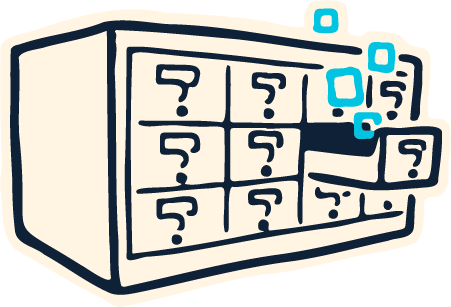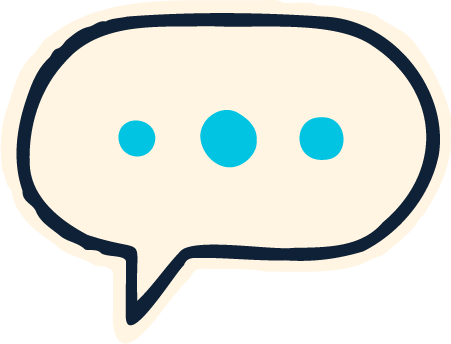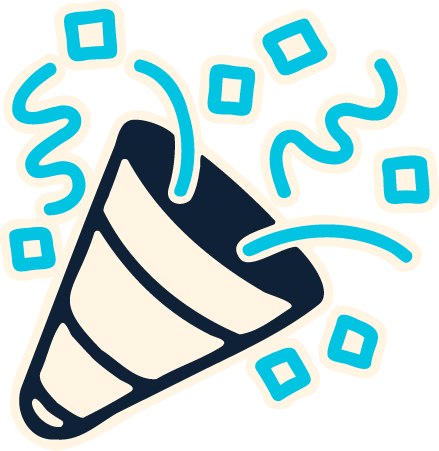We're following the time-honored tradition of concluding this series of videos with resources and information you can use to keep your learning going

Transcript
Davis: First up, Erin, let’s talk workshops. What have you found effective when training your fellow library workers? What recommendations might you have for implementing new privacy policies. for example. or for helping colleagues stay up to date with this quickly moving topic?
Erin: I think the first thing is that you don’t need to be a privacy expert to do this work. If you’re really interested. you want to go down that rabbit hole. we’d be glad to have you. But we do have a professional and ethical obligation to protect our users privacy.
The ALA Privacy Subcommittee has been working the past few years to create resources that are easy for any library worker to use that you can uphold that commitment without needing to be an expert. So the first place I’d start is actually the ALA Privacy Landing Page, and there you’ll find state laws, privacy guidelines, questions, answers, documents, staff training, public workshops, privacy field guides, and a lot more. We’ve tried to make it a really easy to use resource for you, if you find yourself wanting to dig in more.
The Library Freedom Project is a really great place to get in-depth training, and there are a whole bunch of privacy advocates actually on Twitter that you can follow. That can help you keep up with current trends as well and what sorts of workshops have been successful.
When teaching library patrons about data privacy, I think when you’re going to have a data privacy workshop, try to make it fun. It’s not the sexiest of all topics, to be honest, and I’m not fully convinced that workshops in and of themselves are the best way to reach the most people. It’s a path for those who already have interest in learning more, so you can also find ways to integrate privacy in your daily interactions. Someone is setting a pin for the first time? Talk to them about passwords. Do they just give you their social security number in order to fill out a tax form? Time to talk about sensitive information and how to keep it secure. Integrating those little bits throughout the day, I think you’re going to reach more people than just a single workshop.
When teaching library patrons about data privacy… try to make it fun.
Davis: I once attended an event with something called a Data Detox Bar where there were folks wearing white lab coats and providing answers to questions people had about their devices and about data. Have you seen anything like this? What other non-traditional sorts of events might be useful for teaching folks about these topics?
Erin: Sounds like a pretty cool event. I haven’t seen that one in particular. I was talking to some librarians from the Netherlands, and they had hosted a game show where prizes were things like fishing rods, and they also hosted cookie parties for teens where they talked about digital security and ate probably far too many cookies. So the more opportunities you can move away from fear and into fun, the better.
Davis: What are your favorite online resources for tech topics including data privacy and information security?
Erin: For those of you who want to dive in more, the Electronic Frontier Foundation — EFF — is a great resource to stay up to date on what’s happening with privacy and security. You also may want to follow the International Association of Privacy Professionals. Personally, I really like the podcast Dark[net] Diaries. I’ve learned a ton of information security by hearing from various hackers and infosec professionals.
Davis: Thank you so much, Erin, for participating in that one but two of these video series for NYC Digital Safety. It’s been so lovely to chat with you.
And thank you to our audience for watching. I know this is a ton of information and I hope you’ll visit the product website to dig in a little bit more. We’ve tried to make it fun.
And lastly, thank you so much to my project partners at Brooklyn Public Library, The New York Public Library, and Queens Public Library. So I’m signing off. Take good care of yourselves, and take good care of your data.
Further Reading
ALA Privacy Subcommittee
ALA's Privacy Subcommittee "ongoing privacy developments in technology, politics and legislation, as well as social and cultural trends that impact individual privacy and confidentiality, both in libraries and the wider world.Privacy Field Guides
Practical, hands-on exercises for you to create a more privacy-focused library. These guides were designed for academic, public, and school libraries of all types. Sponsored by The Institute of Museum and Library Services in partnership with the American Library Association.Library Freedom Project
We Fight for Privacy Rights.Data Detox Kit
A toolkit presenting steps to take to control your digital privacy and securityDarknet Diaries
A podcast about "hackers, breaches, shadow government activity, hacktivism, cybercrime, and all the things that dwell on the hidden parts of the network."Electronic Frontier Foundation
The Electronic Frontier Foundation is a nonprofit organization defending civil liberties in the digital world. EFF champions user privacy, free expression, and innovation through impact litigation, policy analysis, grassroots activism, and technology development.International Association of Privacy Professionals
A not-for-profit organization that "helps define, promote, and improve the privacy profession globally."
Contributor Bios
- Erin Berman is a Division Director at the Alameda County Library in California and serves as the Chair of the American Library Association’s Intellectual Freedom Committee’s Privacy Subcommittee.
- Davis Erin Anderson is Director of Programs and Partnerships at METRO Library Council.
- This project is funded by the Mayor’s Office of the Chief Technology Officer, and produced in collaboration with Brooklyn Public Library, The New York Public Library, and Queens Public Library.

